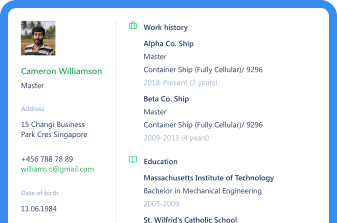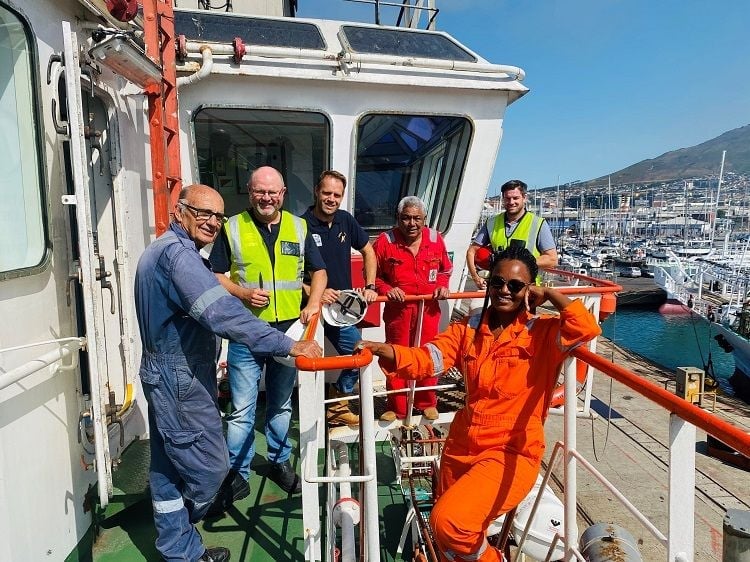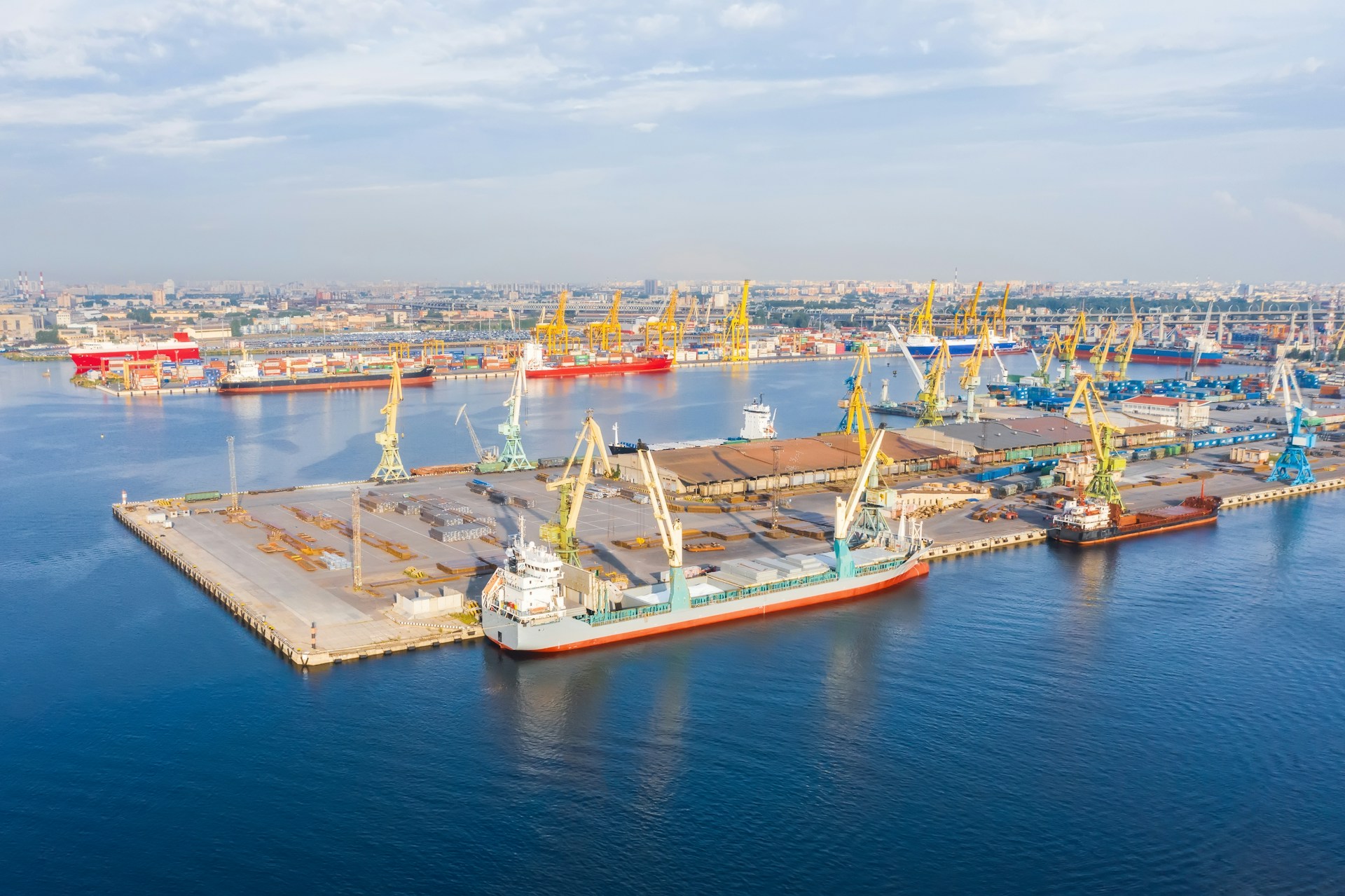A maritime career doesn’t always mean a life at sea and many seafarers naturally seek out shore-based jobs in the shipping industry after spending considerable time on the open waters.
For some it’s because they’re looking for work that’s less physical, for others they’ve had enough of periodically being away from home, friends, and family, and for others, sometimes a sense of isolation and boredom can become commonplace. (Though let’s face it, no job or career is immune to that!)
At some point, most seafarers look for land-based maritime job opportunities. However, if you’re only just starting to wonder what’s out there for you on shore, you may not be aware of the diverse shore-side career options that might be available.
Read more: Tips to Read Before Switching to a Shore-Based Maritime Job
The shipping industry is vast, with numerous sectors that former seafarers can transition into. Seagoing experience is invaluable and can be applied across various industries ashore. Every seafarer possesses skills, knowledge, and experience that are highly valued in many shore-based roles - some might not even be in the shipping industry.
Shore-based jobs in the maritime industry for former seafarers
This is by no means an exhaustive list and you may find some extremely niche maritime jobs ashore that you could segue into once you’ve hung up your backpack and travel pillow!
Please also keep in mind that routes into some of these jobs may be different depending on the rules and regulations in your country. We’re just giving you a general overview here, so please do your own research if you’re serious about pursuing one of the following areas.

And with that in mind, here are just a handful of shore-based maritime career possibilities for seamen and women who are hankering after life on land.
Marine Surveyor
Deck Officers with a certificate of competency as a Master on a vessel and Marine Engineers with a certificate of competency as a Chief Engineer are usually eligible to become marine surveyors.
Marine, or class surveyors conduct surveys and inspections on ships' structures and marine equipment according to national and international regulations to ensure overall condition, quality, and safety.
Experienced seafarers have the observational skills and technical knowledge needed to identify issues and prepare ships for safe voyages. If this is something that interests you as a seafarer, you can enhance your skills by taking distance learning courses in marine surveying from reputable universities.
A good place to find out more about becoming a Marine Surveyor is the International Institute of Marine Surveying.

Maritime Lecturer or Instructor
Maritime training institutions are on the rise, and experienced seafarers who enjoy teaching could join one of these institutions as a maritime lecturer or instructor. You could contribute to developing and refining quality maritime training programs, ensuring that new graduates are well-prepared for the maritime industry.
Training future ship officers to think critically and solve problems is crucial. If you’re a seafarer, you can use your own experiences and research to educate and prepare aspiring seafarers for life at sea, helping them perform their duties diligently and efficiently.
Many maritime academies and universities operate training vessels, requiring knowledgeable instructors to provide essential maritime background knowledge. Hiring experienced Deck Officers or Marine Engineers who have sufficient sea time can significantly benefit the training and development of the next generation of seafarers.
This article about being a Maritime Lecturer was written by a senior lecturer at the United Kingdom’s Warsash Maritime Academy and may have some pointers.
Maritime Recruitment Officer
As a seafarer, you'll have had plenty of contact with Maritime Recruitment Officers. These people play a crucial role in the maritime industry by sourcing, selecting, and hiring qualified seafarers. They are responsible for identifying candidates with the necessary skills, experience, and certifications to meet the specific needs of their, or their client’s, company.
A job in maritime recruitment involves creating and posting job advertisements, reviewing resumes, conducting interviews, and coordinating with hiring managers to ensure the best fit for each position.
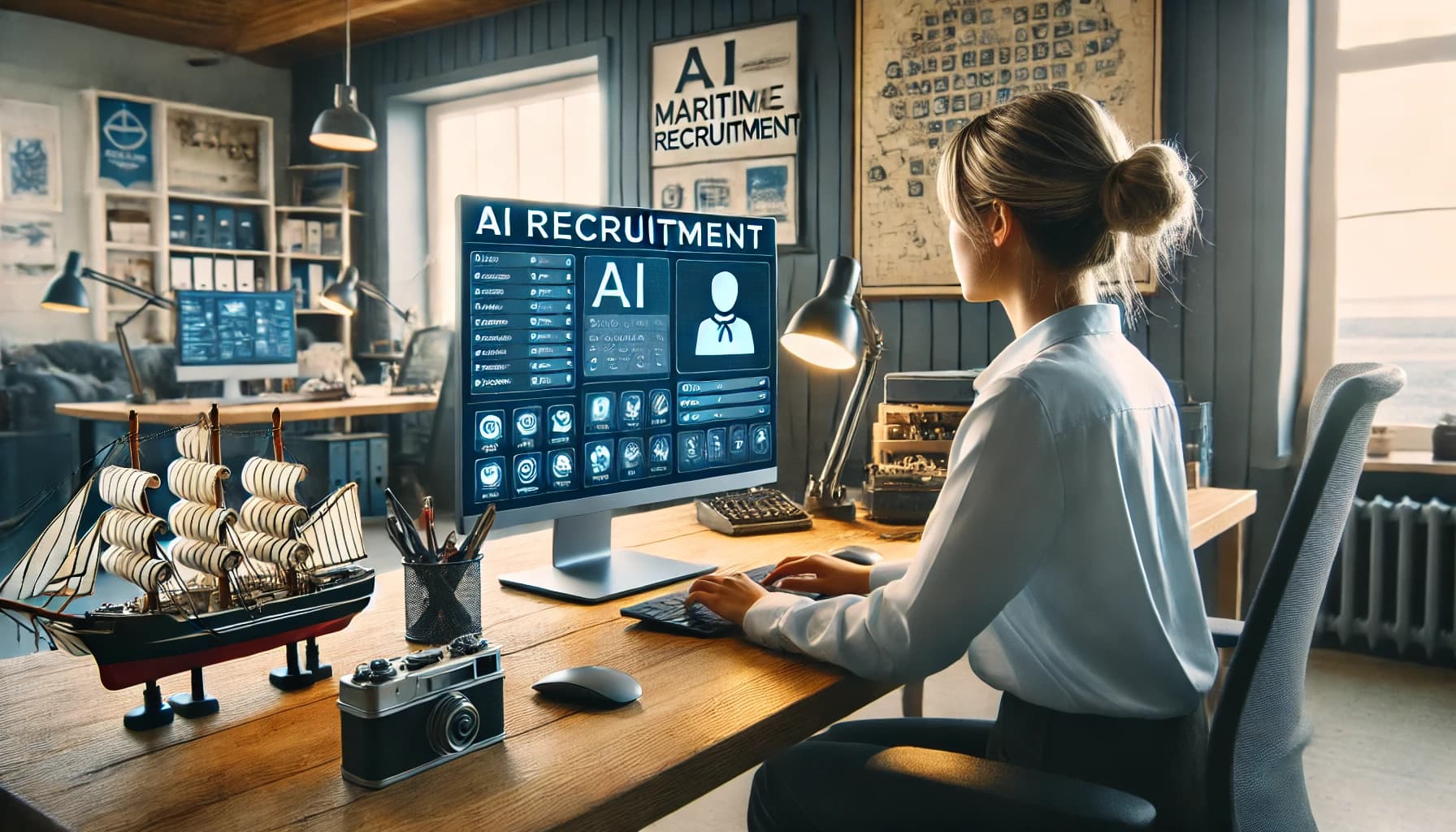
In addition to recruitment, Recruitment Officers also manage the onboarding process for new hires, ensuring that all necessary documentation, such as visas, medical certificates, and training records, are in order.
The Martide blog has dozens of articles related to maritime recruitment and may be worth a look if you’d like to learn more about this shore-based marine job.
Ship Broker or Shipbroker
Ship broking is a natural fit for those with experience in the shipping industry. A Ship Broker acts as a negotiator between ship owners and charterers, finding ships for cargoes and cargoes for ships.
This role requires in-depth knowledge of ships, cargoes, loading and discharging methods, and weather patterns. New entrants can take educational courses offered by the Institute of Chartered Shipbrokers to gain a deeper understanding of the profession.
Organizations like Clarksons offer trainee broker programs that provide insights into the culture and environment of leading ship broking firms and help participants make a difference on a global level.
Both of those organizations are UK-based, but a quick Google should point you in the right direction of information in your own country.
Ship Operations Manager
Ship management is one of the most interesting and challenging sectors of shipping. It involves managing a ship for an agreed period, covering areas such as commercial operations, technical management, crewing, finance, administration, quality, and safety.

Experienced Navigating Officers can join shipping companies ashore as Fleet Managers, Safety and Quality Managers, Training Officers, Technical Managers, and more.
Enrolling in management courses, both distance/online and in-person, can help officers understand core business requirements and equip you with the skills needed to formulate business strategies and manage their businesses successfully.
ShipManagement International is a bi-monthly magazine which might prove useful if this is an area that interests you.
Maritime Regulatory Authority Jobs
Government jobs in the maritime sector are becoming increasingly attractive. To find work as an ex-seafarer in a Maritime Regulatory Authority role, you need to update and maintain relevant qualifications, such as your Certificates of Competency and hold an advanced degree in maritime affairs or policy.
Networking within the industry through professional associations, alumni networks, and industry events is crucial. Regularly check official websites, government job portals, and industry job boards for openings.
Tailor your resume and cover letter to highlight your sea experience and regulatory knowledge. Seek mentorship, prepare thoroughly for interviews, and stay informed about industry trends. Temporary or contract roles can provide valuable experience and lead to a permanent position.
The International Maritime Organization (IMO) is a good place to start but you will want to take a more in depth look at the maritime regulatory bodies in your own country.
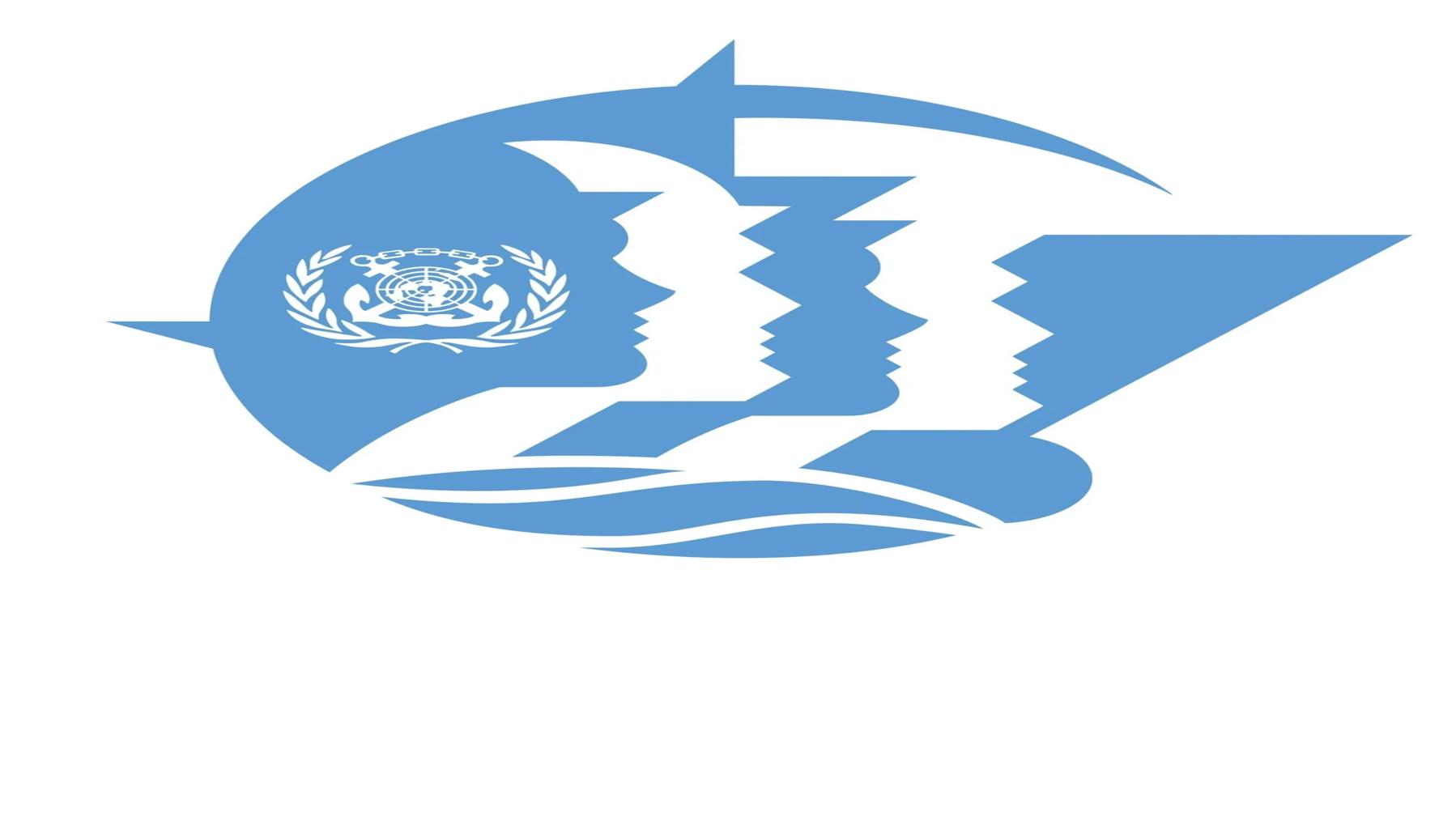
Marine Insurance Officer
A Marine Insurance Officer assesses and manages insurance policies for maritime assets, such as ships and cargo. They evaluate risks, determine coverage terms, process claims, and ensure compliance with international regulations. Their role involves analyzing potential hazards, verifying claims' legitimacy, and advising clients on risk mitigation.
If you’re thinking of packing away your passport and are looking for a maritime career ashore, this job may be suitable thanks to your extensive maritime experience which will provide valuable insights into the operational risks and challenges at sea, enabling you to make informed decisions about coverage and claims.
Your practical knowledge of ship operations and maritime regulations will also enhance our effectiveness in this specialized insurance field.
The International Union of Marine Insurance website might be a good place to start researching this highly specialized marine job career ashore.
Crew Manager and Planner
As an ex, or soon to be ex-seafarer, you might like to consider becoming a Crew Manager if you’re looking for a shore-based marine job. This will mean you are responsible for overseeing the staffing and management of crew members aboard ships.
This role involves ensuring that vessels are adequately manned with skilled and certified personnel. Crew Managers may also handle the recruitment process, selecting qualified seafarers for various ranks, and ensuring that they meet the necessary regulatory and safety requirements.
Crew Managers in the maritime industry also manage contracts, salaries, and other employment terms, ensuring compliance with international maritime labor laws. They play a crucial role in crew welfare and retention too, addressing the needs of crew and providing support for issues such as medical care.

Martide’s collection of articles about crew management in the maritime industry may provide you with some informative reading, if you’re interested in this shore-based job.
Port and Harbor Manager or Pilot
Ports offer exciting job opportunities in various areas, including technical work, administration, management, and vessel traffic services. Seafarers with senior sea experience have the required skills, knowledge, and understanding for these roles.
A degree in port management can provide in-depth knowledge of port operations, regulations, and the economic and commercial aspects of port management.
And if you’re a little unwilling to give up life on the water completely, working as a Marine Pilot might be right for you. Pilots are (normally) skilled navigators or ex-Masters who know a port or waterway and its specific hazards and quirks like the back of their hand. Their job is to guide vessels in and out of the port safely.
Take a look at the online Marine Pilots community for more information.
Maritime Author
Seafarers who have spent considerable time at sea might even like to transition into becoming a published author. If you’re good with the written word, you could write a book sharing your extensive sailing experiences and knowledge.
These can be incredibly useful for Cadets and Marine Officers who are starting out on their maritime career.
Experienced seafarers know the challenges of sea life and what is expected of young Officers preparing for their competency exams. Writing maritime books aimed at helping students prepare for exams and gaining a clear understanding of the subject can be rewarding.

You might want to enroll in a writing course or at least check out some tips on how to write a nonfiction book before you start, just to make sure you have the technical ability to put pen to paper and write something that will be truly useful to anyone starting out in a seafarer job.
The world is (almost) your oyster when it comes to finding a maritime job ashore!
There are numerous shore-based job opportunities for seafarers, allowing you to utilize your maritime skills and experience. This list is not the be all and end all; as a seafarer you can pursue any job you are passionate about - whether it’s in the maritime industry or not.
With dedication, knowledge, and the right skills (and keep in mind that you may need to work on your soft skills when you transition to a maritime career on land), seafarers can successfully transition from sea to shore, staying connected to your loved ones while continuing to contribute to the maritime industry.
Read the next article in this series: Shore-Based Maritime Jobs: Marine Regulatory Authority Jobs

Eve Church
Eve is Martide's content writer, publishing regular posts on everything from our maritime recruitment and crew planning software to life at sea. Eve has been writing professionally for more than two decades, crafting everything from SEO-focused blog posts and website landing pages to magazine articles and corporate whitepapers.
UK
